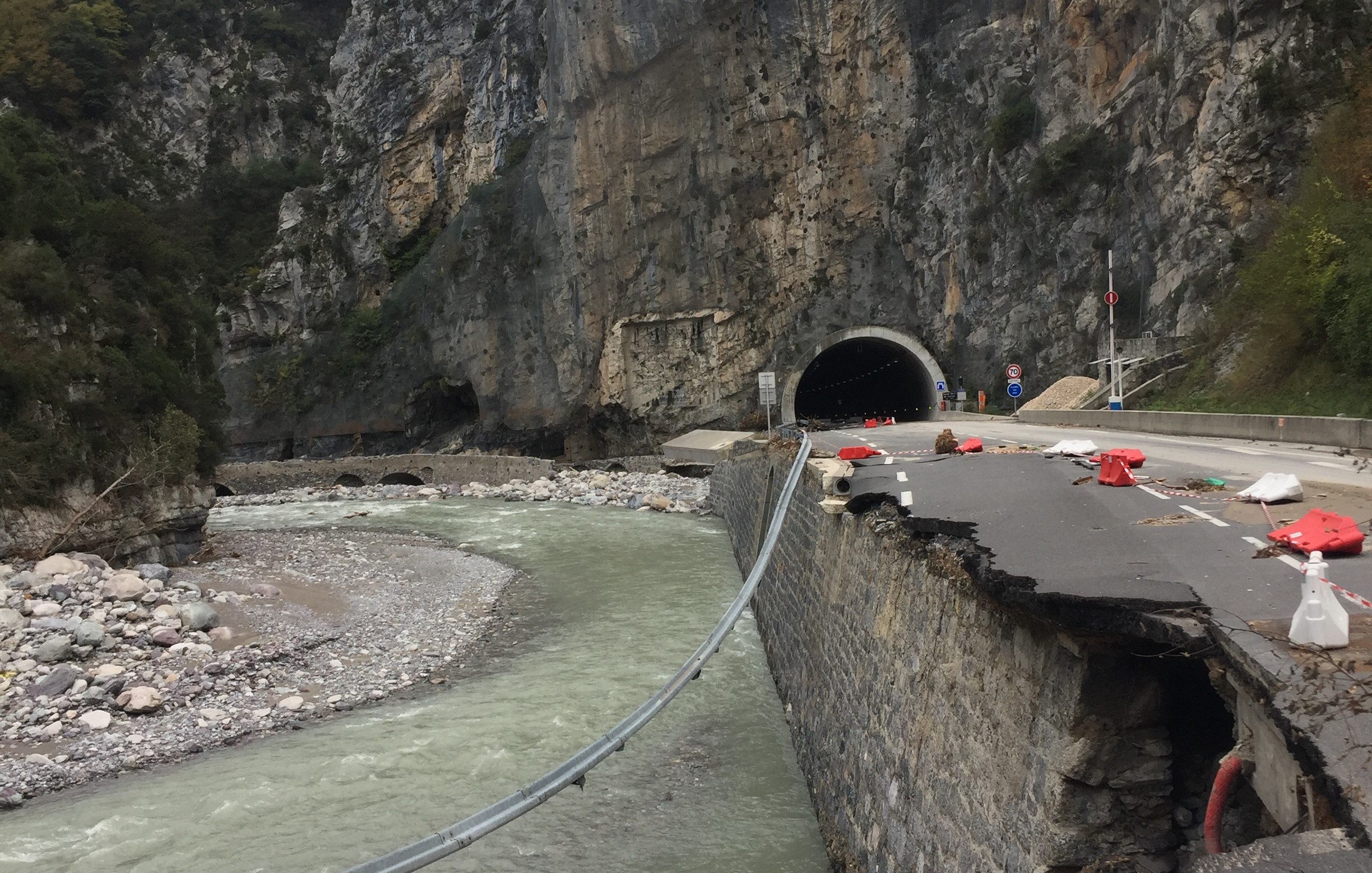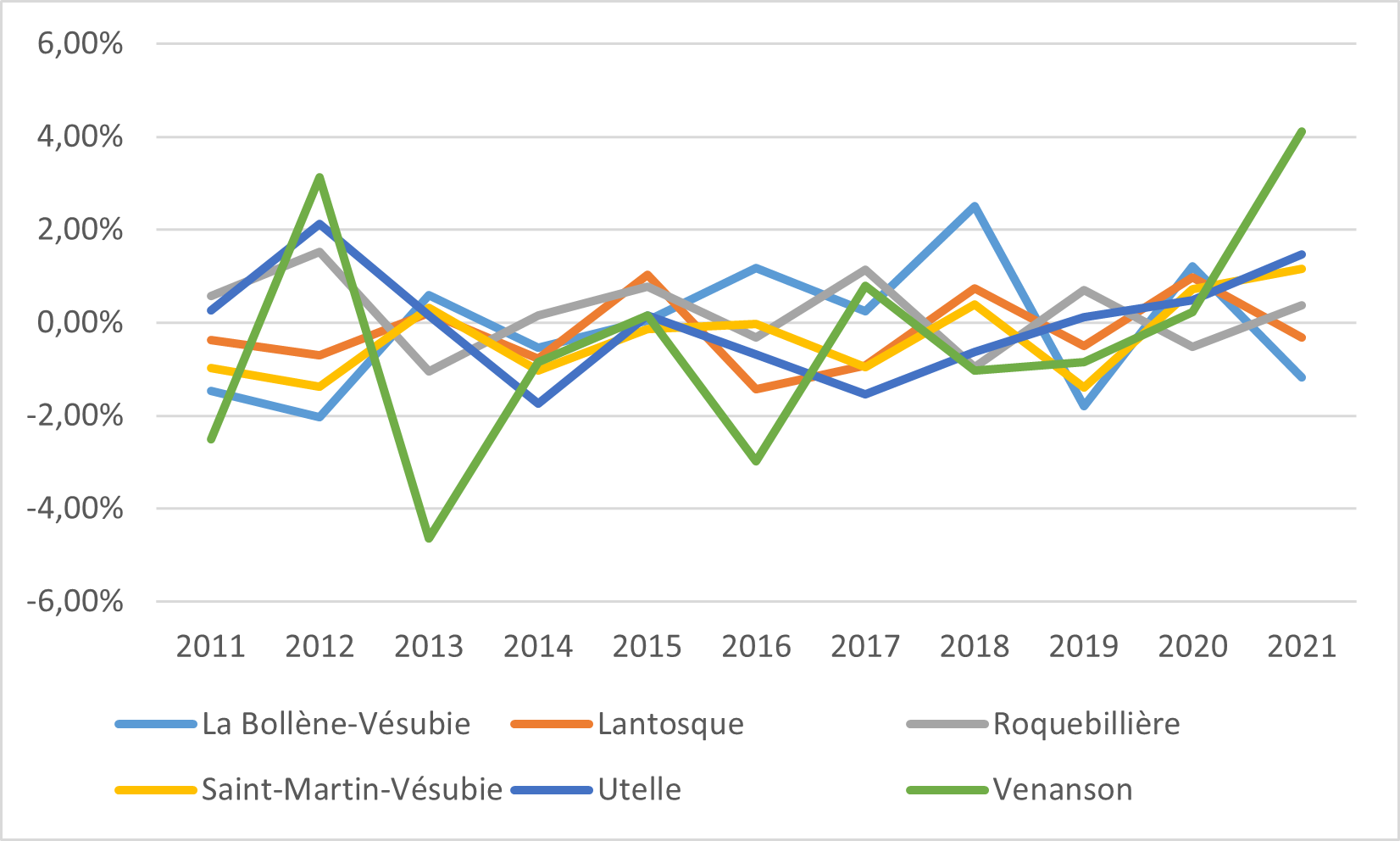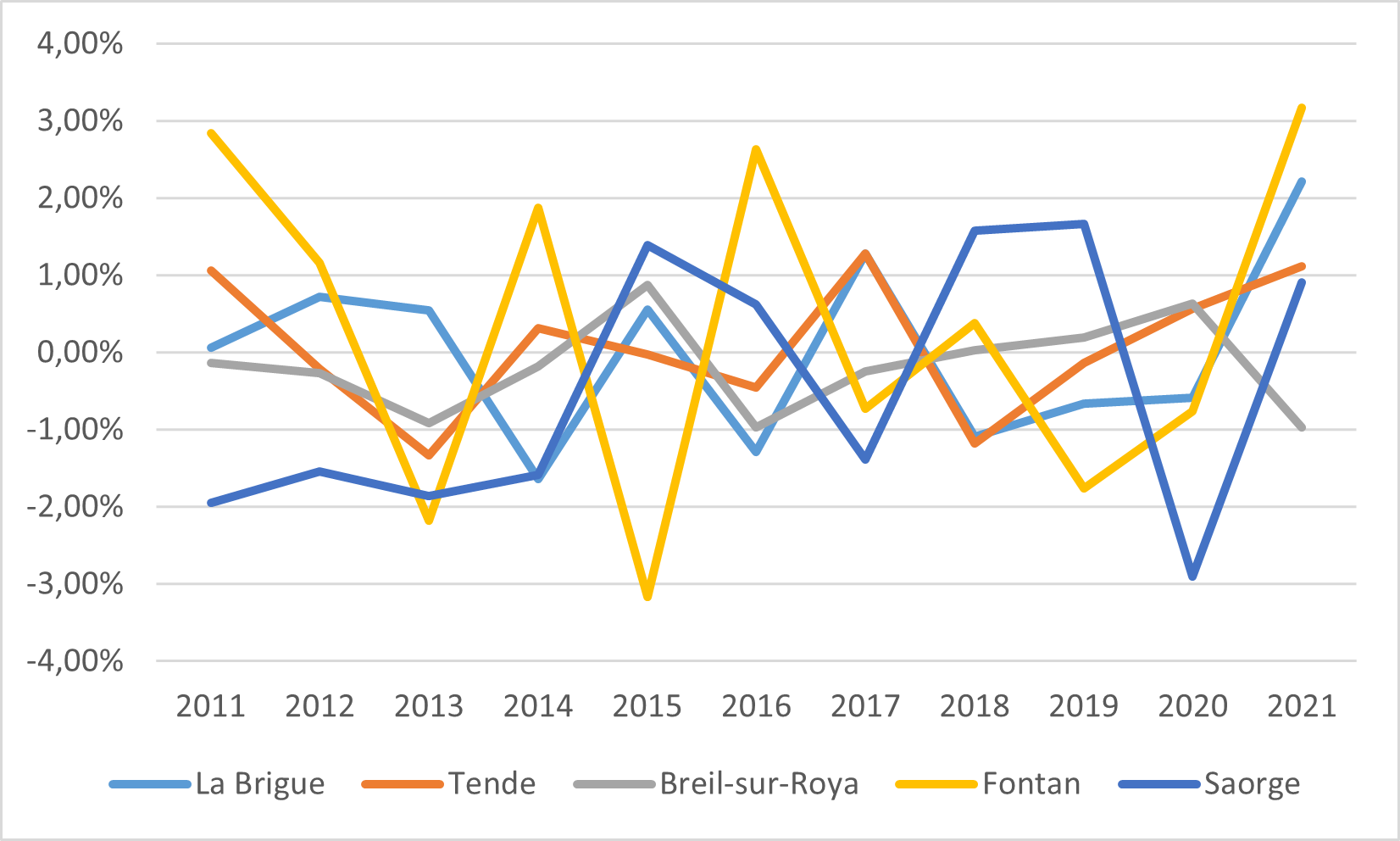Academy of Excellence "Territories, Environments, Risks and Resilience"
Natural Disasters and Mental Health. Rebuilding territories and repairing the living
This project assesses the consequences on mental health of a major natural disaster such as Storm Alex of October 2020, and the consequences of the reconstruction of the area.

Academy 3 highlight
The project addresses the theme of “natural hazards and impacts on environments, cities and societies” and uses an interdisciplinary approach that brings together researchers in public health, economics, environment and artificial intelligence.
The project
On October 2 and 3, 2020, three valleys in the Alpes-Maritimes department were hit by Storm Alex, which caused damage that was considered the most extensive in mainland France since the Second World War.
We can assume that such a catastrophic event was traumatic for the population (notably causing post-traumatic stress states), and that it led to an increase in medical visits, increased consumption of psychotropic medication, and so forth. We can also wonder whether the effects of rebuilding the region led to an economic rebound that had a positive impact on the mental health of the residents of the valleys.
The main originality of this project was to adopt a population-based approach to assess the impact of this disaster on the mental health of valley residents. We therefore did not analyze individuals, but areas – municipalities or IRIS (Ilots Regroupées pour l'Information Statistique, the smallest administrative unit in France) – and studied the aggregate consumption of mental health-related care (consumption of psychotropic medication, medical visits, appointments with psychiatrists, etc.).
We collected aggregated data at the level of the geographic area of the municipality or IRIS. This data came from the CPAM (Caisse Primaire d’Assurance Maladie, the French health insurance system) for medical data, from Insee (National Institute of Statistics and Economic Studies) for socio-economic data, and from Géorisques (public information portal) for data related to environmental or industrial risks.
To measure the consequences of Storm Alex on the population, we have been using three alternative methods:
• The difference-in-differences method is applied to the consumption of mental health-related care for each municipality affected by Storm Alex.
• An econometric approach is used to empirically determine the socioeconomic or environmental determinants of mental health, with the objective of identifying distinct clusters.
• Qualitative surveys are being conducted with mayors of municipalities impacted by Storm Alex.
The first year of the project was mainly devoted to database construction and analysis:
i) checking data consistency; ii) identifying population problems which were measured by the census data and found to be significantly higher in the municipalities of the Vésubie and La Roya valleys due to the prevalence of second homes; iii) developing a multidimensional indicator of social poverty; and iv) conducting a descriptive analysis of mental health care consumption in the Alpes-Maritimes department.
A first analysis was carried out using the difference-in-differences method. This method consists in comparing changes in mental health status between two groups: a first group composed of residents of the municipalities in the affected valleys and a second group (the control group) composed of all the residents of the department (the population of the valleys represents less than 0.01% of the department’s population, so its behavior should not influence the control group).
Mental health was approximated by the proportion of people insured under the general medical scheme who had been reimbursed at least six times for psychotropic medication in a given year. The choice of this proxy can be explained by the absence of community medicine data linking a diagnosis with the prescription of psychotropic medication. The decision to include all psychotropic medication made it possible to work with a higher number of healthcare reimbursements.
In 2020, two major events influenced mental health: the COVID-19 lockdown and Storm Alex. Since Storm Alex occurred in October 2020, the choice of six reimbursements (at least one every 28 days) means that in 2020, we could not yet measure the effects of Storm Alex in terms of reimbursement of psychotropic medication.
The difference-in-differences method applied to the year 2020 allowed us to measure the specific effect of the lockdown in the valley municipalities compared to the rest of the department.
By applying the difference-in-differences method to the year 2021, we measured the effect of Storm Alex on the municipalities in the valleys compared to the rest of the department which was not impacted by the storm.
We were not able to identify an increase in 2021 in the consumption of mental health-related care by residents of the municipalities impacted by the storm. This result could be explained by the hypothesis that the most traumatized residents left the area.


The +
Storm Alex did not cause any significant variation in mental health treatment in the Alpes-Maritimes department. The study shows that it remains challenging to develop quantitative indicators at the IRIS (neighborhood) level of data characterizing exposure to environmental risks.
What’s next?
Based on our results, the project will focus on the effects of rebuilding in the area on population flows and economic activity. Population variations for each municipality (household, business) will be calculated using the FILOSOFI database (Insee). Changes in household habits should provide information on the future demographic movement.
Project information
|
Scientific domain
Human Health, Social Sciences, Economics |
Key words Storm Alex Natural disasters Mental health Psychiatry effects |
|
Total budget
€57,000 from Academy 3
|
Start of the project
2022 |
| Partners GREDEG - Université Côte d’Azur, CNRS Géoazur - Université Côte d’Azur, CNRS, OCA, IRD UR2CA - Université Côte d’Azur CHU de Nice - Université Côte d’Azur INRIA - Sophia-Antipolis CoBtek - Université Côte d’Azur, INRIA RETINES – Université Côte d’Azur IMREDD - Université Côte d'Azur |
Project members Thomas Jobert Laurent Bailly Michel Benoit Hervé Delingette Pierre Dellamonica Eric Guerci Benjamin Montmartin Christian Pradier Damienne Provitolo Pascal Staccini Students involved / |

Thomas Jobert
GREDEG - Université Côte d’Azur, CNRS

Christian Pradier
UR2CA - Université Côte d’Azur
Scientific promotion of the project
- Presentation at the MARALEX conference, “Maralpine watersheds facing changes”. Organized by Academy 3. IMREDD. July 2023.
- Presentation to the CPAM of the Alpes-Maritimes, June 2023


















